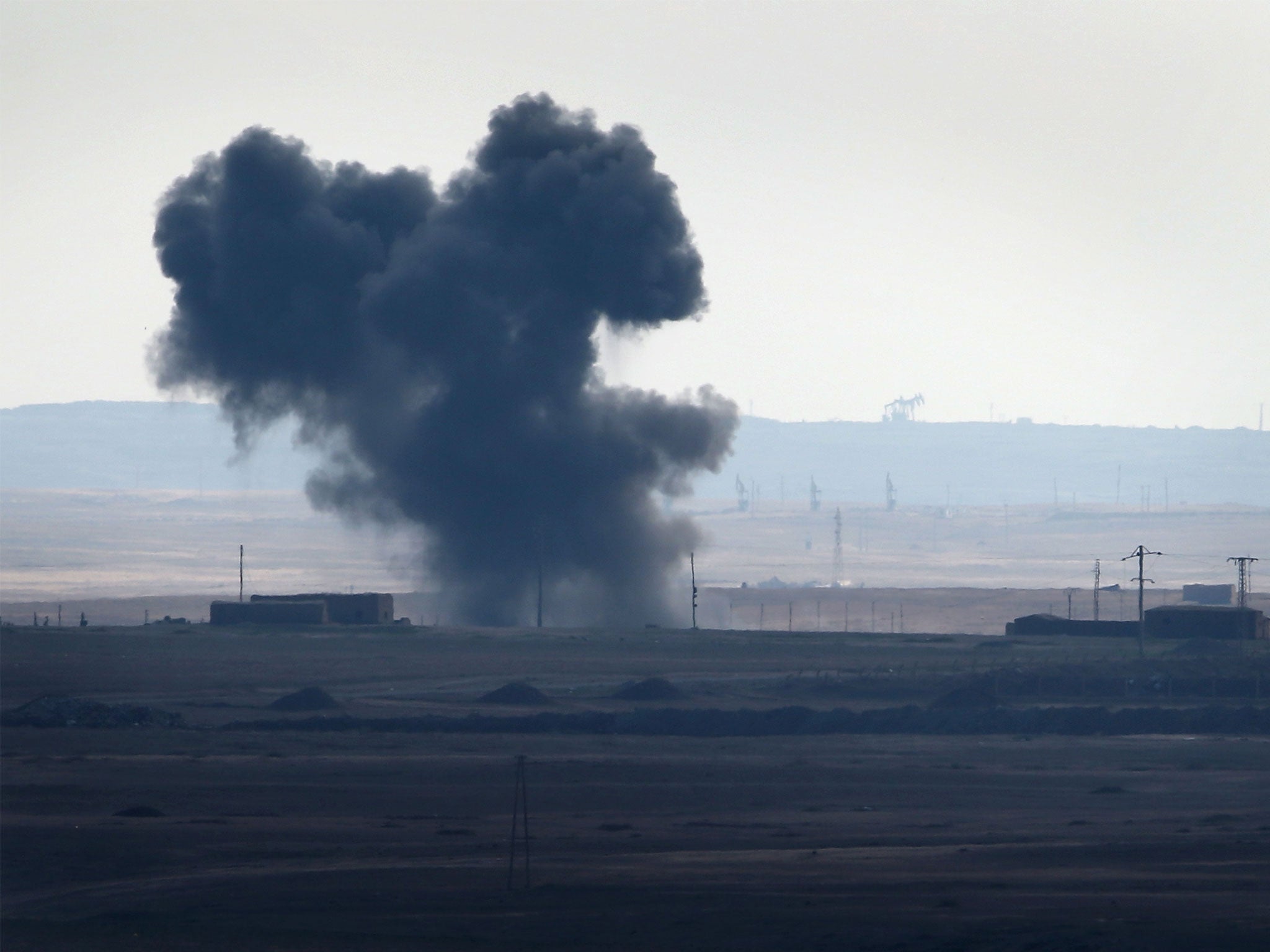US denies claim by Syrian army that coalition air strike hit Isis gas supplies releasing substance that 'killed hundreds'
Accusation follows a week after Bashar al-Assad's government was accused of launching its own chemical attack

Your support helps us to tell the story
From reproductive rights to climate change to Big Tech, The Independent is on the ground when the story is developing. Whether it's investigating the financials of Elon Musk's pro-Trump PAC or producing our latest documentary, 'The A Word', which shines a light on the American women fighting for reproductive rights, we know how important it is to parse out the facts from the messaging.
At such a critical moment in US history, we need reporters on the ground. Your donation allows us to keep sending journalists to speak to both sides of the story.
The Independent is trusted by Americans across the entire political spectrum. And unlike many other quality news outlets, we choose not to lock Americans out of our reporting and analysis with paywalls. We believe quality journalism should be available to everyone, paid for by those who can afford it.
Your support makes all the difference.The US has denied a claim by the Syrian army that American-led coalition jets launched an air strike that hit an Islamic State chemical weapons supply, killing "hundreds including many civilians".
The accusation follows a week after Bashar al-Assad's government was accused of launching its own poison gas attack on Syrian civilians in Idlib province.
A statement on behalf of the Syrian army said the bombing at around 5.30pm local time (3.30pm BST) on Wednesday in the eastern Deir al-Zor province hit the terror group’s stockpile, without giving details of which toxic substance it might be.
But US Air Force Colonel John Dorrian, a spokesman for the America-led coalition, said it had carried out no air strikes in that area at the time.
"The Syrian claim is incorrect," he told Reuters, accusing the regime of deliberately spreading "misinformation".
Syrian state-owned news agency Sana reported the air strike, on the village of Hatla, as a “white cloud that became yellow as a result of the explosion of a huge store that includes a large amount of toxic materials”.
There has been no independent confirmation of the alleged attack by the US-led coalition, which has operated in the skies above Syria since 2014 and includes British, French and German contributions.
The incident proved that Isis and al Qaeda-linked militants "possess chemical weapons", a statement by the army aired by Syrian state TV said.
It added that many died from suffocation after inhaling the noxious gases.
The claim will likely be viewed by observers of the Syrian regime as an attempt to divert attention away from the alleged chemical attack by Damascus on its own people.
Mr Assad has been warned by the international community, including US Secretary of State Rex Tillerson, that the attack on Khan Sheikhoun, if proven to have been authorised by the government, could amount to a war crime.
Syria and its ally Russia deny Damascus carried out any such chemical attack. Moscow has said the poison gas in that incident last week was linked to rebel groups.
The toxic gas attack on 4 April, which killed scores of people including children, prompted a U.S. cruise missile strike on a Syrian air base.
Samples taken from the poison gas site in Idlib tested positive for the nerve agent sarin, the British delegation at the Organisation for the Prohibition of Chemical Weapons (OPCW) said on Thursday.
The UK result confirmed earlier testing by Turkish authorities that concluded that sarin had been used for the first time on a large scale in Syria's civil war since 2013.
The OPCW mission will determine whether chemical weapons were used, but is not mandated to assign blame. Its findings, expected in 3-4 weeks, will be passed to a joint United Nations-OPCW investigation tasked with identifying individuals or institutions responsible for using chemical weapons.
Join our commenting forum
Join thought-provoking conversations, follow other Independent readers and see their replies
Comments